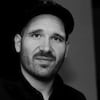How did cyclocross become the most popular cycle sport in Portland? Molly Cameron has some theories, and they stretch from Belgium to the space between the tire and fork on your bike.
Cameron, 37, owns Portland Bicycle Studio, a shop that recently relocated to an airy and oddly quiet spot under the Fremont Bridge in the industrial outskirts of the Pearl District. Previously a serious road racer, she started doing cyclocross because races are scheduled in cooler months, when her shop is less busy. She's since gone on to ride in World Cup races in Europe, China and Japan and become a mainstay of the regional cyclocross community, winning multiple overall series.
Cameron launched Portland Bicycle Studio back in 2001, before the bike boom that led to 60-odd shops in town. Back then, she was "the only punk kid with a bike shop." And she discovered what a lot of other Portlanders have discovered: Cyclocross is a perfect off-road match for the city's bike culture.
"Most of the races in the U.S., if 400 people show up, it's considered a huge success," she says. "Here, we get 1,500. We have a really unique scene where we're so well-known for cross that it's become a gateway to everything else. In most places, people will try out mountain or street racing first and then do cross in the offseason."
The reasons for the popularity of cyclocross in Portland get to the heart of what it means to cycle in this city.
First, there's a serious sense of community. Cross races are short looped courses that cover less than two miles but might include pieces of road, muddy trail, grass and steep tree-covered hills. Part of the course might be unrideable, requiring riders to hop off their bikes and portage them. In Portland, the grassy patches cordoned off from tree-lined courses are filled with spectators who tailgate with burgers on the grill and coolers filled with canned craft beer.
"It's a party," Cameron says. "For spectators, it's so much better of an event. For riders, too. You see your friends, as opposed to other races where you don't see each other for three hours and then say, 'Hey, how was it?' at the end."
Then there are the bikes. Starting at about $1,100, entry-level cross bikes are inexpensive compared to what you might see on a road course. Even better, they're versatile enough to be commuter-friendly in our famously damp city, with thin, knobby tires and frames that leave room for fenders.
"The sport suits the bikes Portlanders want to ride anyway," Cameron says.
Less obvious, perhaps, is the tie to other bike-loving countries. Cross is a century old, beginning as an offseason sport for racers in bike-mad Belgium and France. Cameron, a former pro road racer who owned a bike-messenger company in the Bay Area during the dot-com bubble and who first considered moving to Portland while on tour with her political hardcore band, has spent a lot of time in Belgium. Belgium also has a mild temperature, lush forests and a love of beer and bikes.
Although Portland cyclocross crowds have grown to impressive size, the enthusiasm of the Belgians is still unmatched, Cameron says. Not necessarily of the people in jerseys, but of the spectators, including the airport security officer in Brussels who recognized Cameron immediately from the nightly news. If cyclocross's popularity continues to grow here, it might not just be reflected in the number of people racing, but in the number of fans with a sausage on the grill and a Hopworks lager in their hand.

The Urbanists: Urbanist Bike Shops | Bike Courier Meghan Mack
The Muddy: Rides and Shops | Cyclocross Pro Molly Cameron
The Speedsters: Rides and Shops | Track Champ Zak Kovalcik | Hardest Bike Ride in PDX
The Weirdkeepers: Rides and Shops | The Unipiper
The Longhaulers: Rides and Shops | Cycling Tourist Ellee Thalheimer | Bikepacking to the Coast
BMX: Rides and shops | Goods BMX's Shad Johnson
Portland Bike Gear | PDX Airport Carpet Wear | Full Bike Shop Directory
WWeek 2015
.jpg?smart=true&auth=__replaceMehttp%3A%2F%2Fstatic.wweek.com%2Fimage-archive%2F16973%2Fbike_2014%28cameron%29.jpg__&width=800&height=450)
